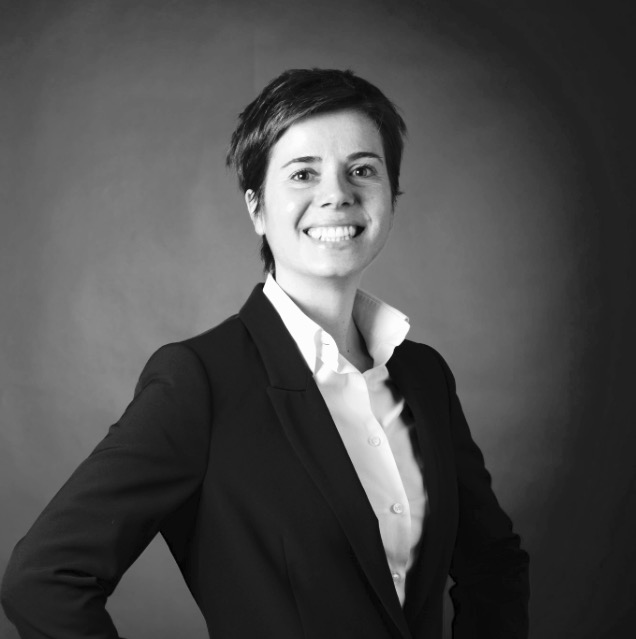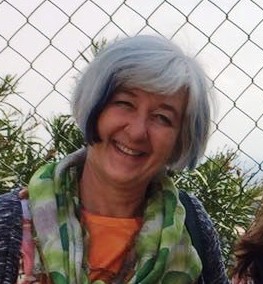Studying at the University of Verona
Here you can find information on the organisational aspects of the Programme, lecture timetables, learning activities and useful contact details for your time at the University, from enrolment to graduation.
Academic calendar
The academic calendar shows the deadlines and scheduled events that are relevant to students, teaching and technical-administrative staff of the University. Public holidays and University closures are also indicated. The academic year normally begins on 1 October each year and ends on 30 September of the following year.
Course calendar
The Academic Calendar sets out the degree programme lecture and exam timetables, as well as the relevant university closure dates..
| Period | From | To |
|---|---|---|
| I semestre | Oct 1, 2014 | Jan 10, 2015 |
| II semestre | Feb 23, 2015 | May 30, 2015 |
Exam calendar
Exam dates and rounds are managed by the relevant Foreign Languages and Literatures Teaching and Student Services Unit.
To view all the exam sessions available, please use the Exam dashboard on ESSE3.
If you forgot your login details or have problems logging in, please contact the relevant IT HelpDesk, or check the login details recovery web page.
Should you have any doubts or questions, please check the Enrollment FAQs
Academic staff
 lidia.carolgerones@univr.it
lidia.carolgerones@univr.it
 jan.casalicchio@univr.it
jan.casalicchio@univr.it

Degani Marta
 marta.degani@univr.it
marta.degani@univr.it
 +39 045802 8259
+39 045802 8259
 rossella.resi@univr.it
rossella.resi@univr.it
Study Plan
The Study Plan includes all modules, teaching and learning activities that each student will need to undertake during their time at the University.
Please select your Study Plan based on your enrollment year.
1° Year
| Modules | Credits | TAF | SSD |
|---|
2° Year activated in the A.Y. 2015/2016
| Modules | Credits | TAF | SSD |
|---|
| Modules | Credits | TAF | SSD |
|---|
| Modules | Credits | TAF | SSD |
|---|
| Modules | Credits | TAF | SSD |
|---|
Legend | Type of training activity (TTA)
TAF (Type of Educational Activity) All courses and activities are classified into different types of educational activities, indicated by a letter.
Advanced marketing for goods and services (2015/2016)
The teaching is organized as follows:
Learning outcomes
Subject Overview
Contemporary market economies are dominated by services. This subject helps students appreciate the distinct characteristics of services and the implications these have for developing and implementing marketing strategies in a wide range of service industries. Current issues in technology and ethics are also examined in relation to service organizations.
Learning outcomes
On successful completion of this subject, you should:
• be able to identify the distinctive characteristics of services marketing and explain the expanded marketing mix;
• be able to conceptualize and explain the significance of satisfaction, value and service quality in achieving competitive advantage, and devise approaches for measuring these elements;
• be able to formulate a service product strategy and explain the important considerations in the development of new services;
• be able to explain the importance of asset use and yield management and develop pricing objectives and strategies;
• be able to describe capacity management techniques and formulate demand management strategies;
• be able to discuss the implications of service characteristics on marketing communications, and develop appropriate marketing communications strategies;
• be able to design an effective customer service organization, including implementation guidelines for a customer service program;
• be able to articulate the importance of customer retention, and develop retention strategies; and
• be able to describe and develop an effective service recovery process.
Program
Prescribed text for attending students
Services marketing : people, technology, strategy. - 7th Global ed. Christopher Lovelock, Jochen Wirtz.
The topics in this subject are the Chapters of the prescribed text:
Topic 1 New Perspectives on Marketing in the Service Economy
Topic 2 Consumer Behavior in a Services Context
Topic 3 Positioning Services in Competitive Markets
Topic 4 Developing Service Products: Core and Supplementary Elements
Topic 5 Distributing Services Through Physical and Electronic Channels
Topic 6 Setting Prices and Implementing Revenue Management
Topic 7 Promoting Services and Educating Customers
Topic 8 Designing and Managing Service Processes
Topic 9 Balancing Demand and Productive Capacity
Topic 10 Crafting the Service Environment
Topic 11 Managing People for Service Advantage
Topic 12 Managing Relationships and Building Loyalty
Topic 13 Complaint Handling and Service Recovery
Topic 14 Improving Service Quality and Productivity
Topic 15 Striving for Service Leadership
Non attending students will have to prepare the following textbook and scientific paper:
- Mattiacci A., Pastore A., Marketing. Il management orientato al mercato, Hoepli, Milano, 2014 (tutti i capitoli)
- Vargo & Lusch, “Evolving to a new dominant logic for marketing”, Journal of Marketing, vol. 68, 2004
Examination Methods
ATTENDING Students will be required to read assigned papers and to perform an oral formal presentation of one or two of them
How you are expected to engage with the subject
To study this subject effectively, you should follow these guidelines:
1. Refer to each online topic and read the relevant chapters of the prescribed textbook.
2. Read the objectives and commentary for each online topic.
3. Read the provided Readings, if any, for the topic.
4. Complete the review exercise provided for each topic.
5. To gain further insight in the topic area, attempt to read more from the list of 'references for further readings provided.
6. Take notes as you read further and start preparing initial answers for your assignment tasks well in advance before the due date.
7. Refer to the learning skills resources provided to ensure that your assignment content and presentation meet academic standards.
8. After the last topic is completed, reflect on your notes, and revise your learning during the review period before you attempt the last assessment task.
ng during the review period before you attempt the last assessment task.
Studying at university does not mean studying alone. Take advantage of collective wisdom.
Use the subject schedule to plan your studies over the session.
Grading
The grading will be as follows:
- Assessments 20 marks
- Final exam 5 marks
- Participation (beyond formal assessments) 5 marks
The final exam for attending students will be written (open questions relating to course materials)
For non attending students, exam will be both written and oral. It is necessary to pass the written test to access oral.
Type D and Type F activities
To discover all the teaching activities accredited by the foreign teaching college click here
Career prospects
Module/Programme news
News for students
There you will find information, resources and services useful during your time at the University (Student’s exam record, your study plan on ESSE3, Distance Learning courses, university email account, office forms, administrative procedures, etc.). You can log into MyUnivr with your GIA login details: only in this way will you be able to receive notification of all the notices from your teachers and your secretariat via email and soon also via the Univr app.
Gestione carriere
Student login and resources
Attività accreditate D/F
Calendario didattico dettagliato
Competenze linguistiche (prima e seconda lingua)
Language skills
Compilazione del piano didattico
Corso di Lingua portoghese
Erasmus+ e altre esperienze all'estero
Linguistic training CLA
Percorso verso l'insegnamento
Una delle possibilità per gli studenti dopo il conseguimento della laurea magistrale è l’insegnamento nella scuola: l’Università degli Studi di Verona è tra gli enti accreditati dal MIUR per l'erogazione di corsi di formazione e aggiornamento e qualificazione delle competenze per insegnanti. Il percorso per diventare insegnante è legato alle seguenti condizioni:
1a CONDIZIONE
Il possesso della laurea magistrale o a ciclo unico, oppure diploma di II livello dell’alta formazione artistica, musicale e coreutica, oppure titolo equipollente o equiparato, coerente con le classi di concorso vigenti alla data di indizione del concorso; il futuro insegnante dovrà, inoltre, soddisfare i requisiti di accesso previsti per la classe di concorso scelta.
Per le classi di concorso:
- A-24 (Lingue e culture straniere negli istituti di istruzione secondaria di II grado) e
- A-25 (Lingua inglese e seconda lingua comunitaria nella scuola secondaria I primo grado)
sono previsti i seguenti requisiti di accesso (vedi l’allegato A al DM 259/2017):
1) 18 CFU nei settori scientifico disciplinari L-LIN/01 e/o L-LIN/02
2) 36 CFU della lingua di specializzazione scelta
3) 24 CFU della letteratura relativa alla lingua di specializzazione scelta.
I requisiti specifici delle classi di concorso A-24 e A-25 possono essere soddisfatti nell’ambito dei piani didattici o negli esami a scelta libera superati all’interno del percorso di studio universitario (Laurea Triennale e Magistrale), oppure attraverso l’iscrizione a corsi singoli.
Il requisito relativo alla lingua di specializzazione (2) è soddisfatto (sulla base degli esami previsti nel piano didattico) nell’ambito del percorso formativo che comprende una laurea triennale dell’area di Lingue e Letterature Straniere, seguita da una laurea magistrale della medesima area (qualsiasi Corso di Laurea triennale e magistrale dell’area di Lingue e Letterature Straniere).
Per verificare i requisiti relativi alla letteratura di specializzazione (3) e agli insegnamenti di linguistica che appartengono ai settori scientifico-disciplinari di L-LIN/01 e L-LIN/02 (1), invece, gli studenti sono invitati a consultare il proprio piano didattico per verificare il numero di CFU previsti nel percorso formativo.
2a CONDIZIONE
Il possesso dei 24 crediti formativi universitari o accademici acquisiti in forma curricolare, aggiuntiva o extra curricolare nelle discipline antropo-psico-pedagogiche e nelle metodologie e tecnologie didattiche, garantendo comunque il possesso di almeno 6 CFU conseguiti in ciascuno di almeno tre dei seguenti quattro ambiti disciplinari:
1) pedagogia;
2) pedagogia speciale e didattica dell’inclusione;
3) psicologia; antropologia;
4) metodologie e tecnologie didattiche.
Percorso formativo 24 CFU
Consente di acquisire uno dei requisiti di partecipazione al concorso nazionale per l’accesso al “percorso annuale di formazione iniziale e prova” su posti comuni e di sostegno, ai sensi del D.Lgs 13 aprile 2017, n. 59 come modificato dalla legge n.145 del 30/12/2018 (c. dal 792 al 796).
I settori scientifico disciplinari, gli obiettivi formativi, le modalità organizzative e gli eventuali costi sono stati stabiliti dal D.M. 10 agosto 2017, n. 616.
Per sapere quali insegnamenti della propria carriera vengano automaticamente riconosciuti si rimanda alla pagina del sito di Ateneo dedicata al percorso formativo 24 CFU.
Si consiglia agli interessati di consultare la pagina https://www.univr.it/it/i-nostri-servizi/futuri-studenti/post-laurea/formazione-degli-insegnanti in costante aggiornamento, in particolare sezione documenti in cui vengono pubblicati formulari, programmi degli insegnamenti ed elenchi di studenti ammessi.
Tra gli insegnamenti automaticamente riconosciuti nell’ambito dei 24 CFU vi sono: Insegnamento delle lingue (L-LIN/02) e Apprendimento delle lingue (L-LIN/02), previsti nel piano didattico del curriculum Linguistico-didattico del CdS di Lingue e letterature straniere (LLS).
Gli studenti immatricolati nel CdS di LLS che hanno scelto i curricula Letterario e Artistico possono comunque inserire tali insegnamenti nel piano di studi come crediti D (a scelta libera).
Gli studenti immatricolati negli altri CdS triennali del Dipartimento di Lingue e letterature straniere (Lingue e culture per il turismo e il commercio internazionale; Lingue e culture per l’editoria [a esaurimento]; Lingue e letterature per l’editoria e i media digitali) posso inserire tali insegnamenti nella propria carriera solo su eventuale autorizzazione preventiva del Presidente del Collegio Didattico (mediante Help desk).
Il soddisfacimento della 1a e 2a condizione è requisito obbligatorio per partecipare ai concorsi di abilitazione o specifici percorsi post lauream previsti dal Ministero.
Presentazione dei corsi di studio e Open day
Graduation
Stage e tirocini
Nel piano didattico della laurea magistrale in Lingue per la comunicazione turistica e commerciale (LM38) è previsto un periodo di stage/project work (CFU 9).
Le attività di stage sono finalizzate a far acquisire allo studente una conoscenza diretta in settori di particolare utilità per l’inserimento nel mondo del lavoro e per l’acquisizione di abilità specifiche d’interesse professionale. Tali attività possono essere svolte in aziende nazionali ed estere che operano nel settore del turismo e che presentano sbocchi di mercato internazionali, accreditate presso l’Ateneo Veronese, nonché presso Enti della Pubblica Amministrazione, Laboratori e Centri di Servizi pubblici (sono da intendersi in questo novero anche i Centri di Servizio ed i Laboratori che fanno capo all’Ateneo). Tali attività possono svolgersi anche nel contesto di project work organizzati sotto la diretta responsabilità di un docente o di un esperto del settore incaricato dal Collegio Didattico.
I crediti maturati in seguito ad attività di stage saranno attribuiti secondo quanto disposto nel dettaglio dal “Regolamento d’Ateneo per il riconoscimento dei crediti maturati negli stage universitari” vigente.
- Tutte le informazioni in merito agli stage per futuri studenti sono disponibili alla pagina Stage e tirocini.
- Tutte le informazioni in merito agli stage per studenti iscritti sono pubblicate in MyUnivr - come fare per - stage e tirocini.
- Tutte le informazioni in merito agli stage per le aziende sono disponili alla pagina Stage e tirocini per azienze.
Ulteriori informazioni al seguente link https://www.univr.it/it/i-nostri-servizi/gestione-carriere-studenti-lingue-e-letterature-straniere/stage-e-tirocini-lingue-e-letterature-straniere




















